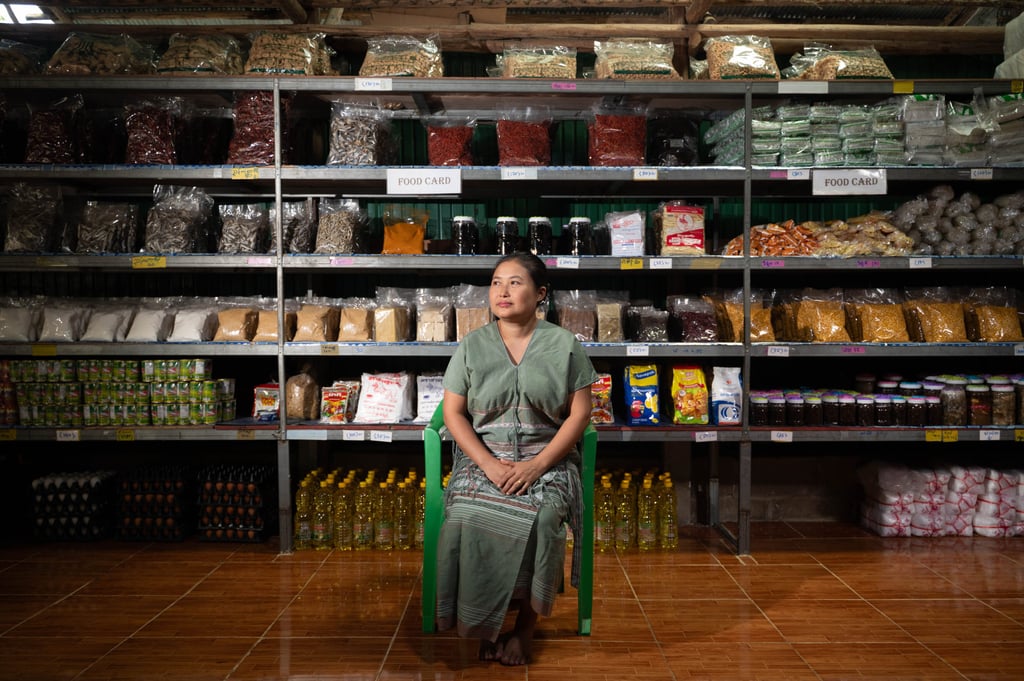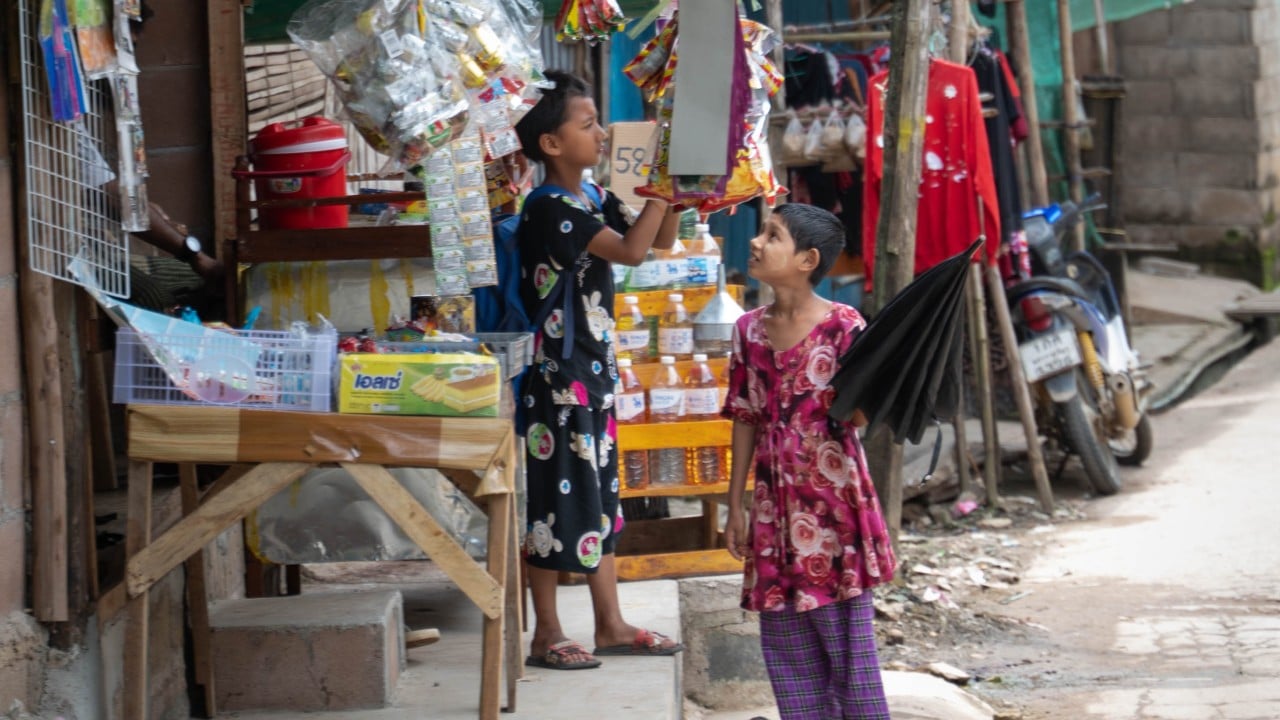On the first day of every month, refugees in camps along the Thailand–Myanmar border would usually receive a top-up of credits to their digital food cards before making a beeline for food-card shops to stock up on groceries.
Advertisement
On August 1, however, the shops stood quiet. Not a single queue formed outside.
In Mae La camp – the largest of nine along the Thai border – Naw Wah Nay Paw, a worried storekeeper, stands among unsold bottles of cooking oil and cans of fish neatly arranged in rows. Most refugees have not received a single baht in their food cards for this month.
“Sometimes people who are struggling ask me for food. I feel so anxious about what is going to happen tomorrow,” the 40-year-old said. “If people stop buying supplies from me, I might lose my shop.”

US President Donald Trump’s move in January to cut nearly US$9 billion in foreign humanitarian aid has resulted in global health programmes under the US Agency for International Development (USAID) – the American government’s humanitarian-aid coordinating body – facing critical shortfalls in food and healthcare services.
Advertisement
Among the foreign aid cuts were US$800 million for a programme providing emergency shelter, water and family reunification for refugees and US$496 million to provide food, water and healthcare for countries hit by natural disasters and conflicts. Also cancelled was US$4.15 billion for programmes that aimed to boost economies and democratic institutions in developing nations, according to the Associated Press.

